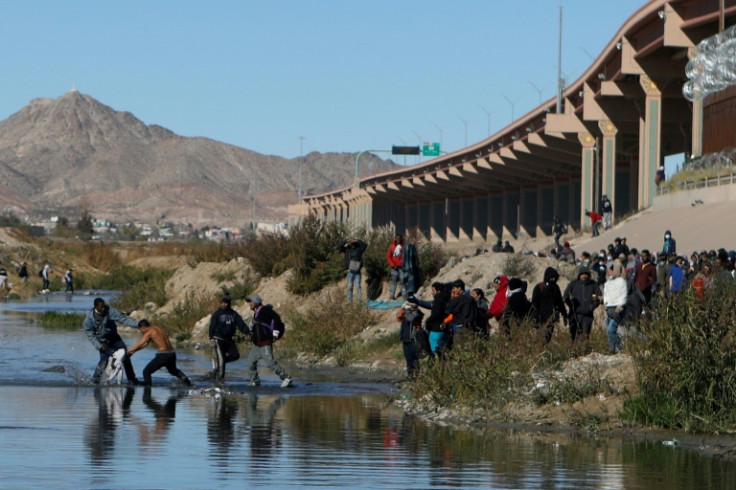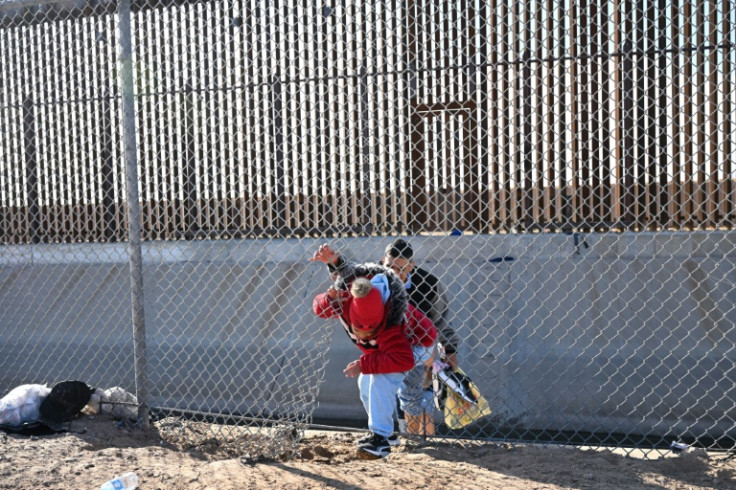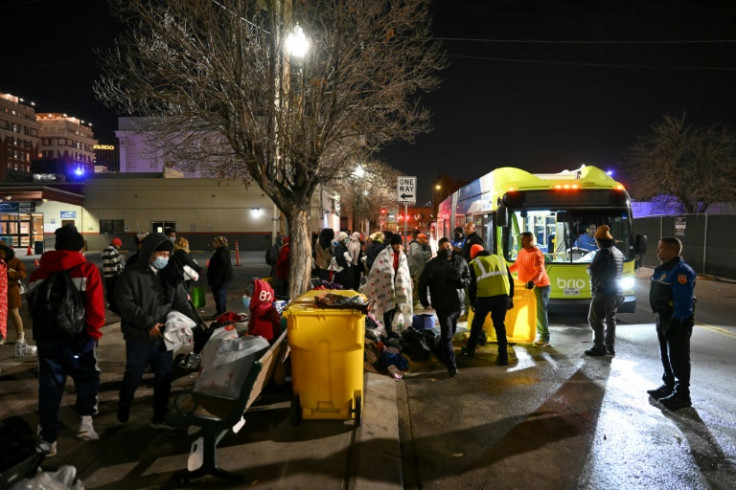The Kindess Of Strangers Keeps Migrants Warm On US-Mexico Border

Rosa Falcon has turned her Texas home into a shelter for desperate migrants crossing from Mexico, whose numbers have swelled as the United States prepares for the possible lifting of rules that have kept the border effectively shut.
The sight of hundreds of people huddling against the freezing winter weather on the streets of El Paso was just too much for her to bear.
"With everything they have lived through, to leave them like that, adrift, on the street, seems illogical and inhumane to me," said Falcon as she made her nightly rounds through the city which neighbors Mexico's Ciudad Juarez.
The southern border of the United States has been officially closed to immigrants without visas for more than two years under a controversial health measure invoked by then-president Donald Trump during the Covid-19 pandemic.
Title 42 prevents asylum seekers from presenting themselves at ports of entry, allowing border patrol officers to turn them away without starting an asylum application.
Its stated purpose is to prevent the entry to the United States of people carrying a contagious disease.
But critics charge that with Covid endemic in the country -- the United States has logged around 100 million confirmed cases -- it is meaningless. Its true purpose, they say, is to keep migrants out.
But it's never been very good at doing that.
Knowing that ports of entry are closed to them, would-be asylum seekers instead seek out gaps in the fence and other well-used crossing locations.
Once across, they present themselves to under-resourced border officials who take them to facilities where their cases are considered, and, if accepted, release them with a date when their bid for asylum will be considered.
In El Paso those with relatives wait for money transfers from friends and family that will allow them to buy a bus ticket.
Many sleep rough, the clothes they wear their only possessions.
"It's heartbreaking, especially when there are children," said Falcon, a school teacher, who has built a support network with other volunteers and local churches.
More than 53,000 migrants surrendered to border authorities after illegally crossing this section of the border in October alone, a 280 percent increase on the same month last year.
Many arrive in desperate poverty, hungry and exhausted after an arduous struggle through the Darien jungle in Panama, or wet and dirty after wading across the Rio Grande, the river that separates Mexico from the United States.
Recent days have seen a spike in the number of people who have made it to El Paso after sneaking over the border.
So great are the numbers that Mayor Oscar Leeser has declared a state of emergency, to free up resources to help them.
On Saturday night, after his announcement, a bus arrived at a station in downtown El Paso, a frequent stop for poverty-stricken migrants looking to make their way to other cities.
"Anyone who doesn't have a ticket by tomorrow can come with us," a municipal official said, explaining people would be taken to a hotel to sleep.
Most of those at the bus station refused to move.
"We have heard so many things," said Santiago, a 23-year-old Colombian. "How can we trust them? What if they take us to another state?"
Title 42 had been due to lapse at midnight between December 20 and 21, but on Monday the US Supreme Court issued an administrative stay to allow the bench to consider an appeal by Republican Party-led states against its expiration.
In the meantime, the desperate migrants continue to cross.
President Joe Biden's administration is at pains to stress they have control of the border, and that it is not a free-for-all.
"It would be wrong to think that the border is open," White House spokeswoman Karine Jean-Pierre said Monday.
"It's not open."
An AFP team at the border on Monday watched 10 people squeeze through a hole in the fence in around 10 minutes.
They, and the many others that cross, will surrender to officials. If their cases qualify they will then be sent back out onto the streets, where for a few days they will survive on the mercy of strangers unwilling to watch them shiver.
On a recent chilly evening, Falcon, her mother, daughter and son-in-law drove around El Paso offering help to anyone who needed it.
There are usually four or five people sleeping in her living room, strangers she feeds -- and sometimes clothes -- from her own pocket.
"Even though I don't know them, I feel like they are part of my family," she said.



© Copyright AFP 2024. All rights reserved.





















